 Movies and TV
Movies and TV  Movies and TV
Movies and TV  Humans
Humans 10 Times Scientists Were Absolutely Sure… and Absolutely Wrong
 Our World
Our World 10 Pivotal Moments for Life on Earth
 Movies and TV
Movies and TV 10 Most Realistic Medical TV Shows of All Time
 Creepy
Creepy 10 Eerie & Mysterious Ghosts of the Pacific Coast
 Weird Stuff
Weird Stuff 10 Typos That Accidentally Changed History
 History
History 10 Times Trickery Won Battles
 Technology
Technology 10 Awesome Upgrades to Common Household Items
 Misconceptions
Misconceptions 10 Hilarious (and Totally Wrong) Misconceptions About Childbirth
 Weird Stuff
Weird Stuff 10 Warning Labels That Exist Because Someone Actually Tried It
 Movies and TV
Movies and TV 10 Zombie Movies That Will Actually Terrify You
 Humans
Humans 10 Times Scientists Were Absolutely Sure… and Absolutely Wrong
 Our World
Our World 10 Pivotal Moments for Life on Earth
Who's Behind Listverse?

Jamie Frater
Head Editor
Jamie founded Listverse due to an insatiable desire to share fascinating, obscure, and bizarre facts. He has been a guest speaker on numerous national radio and television stations and is a five time published author.
More About Us Movies and TV
Movies and TV 10 Most Realistic Medical TV Shows of All Time
 Creepy
Creepy 10 Eerie & Mysterious Ghosts of the Pacific Coast
 Weird Stuff
Weird Stuff 10 Typos That Accidentally Changed History
 History
History 10 Times Trickery Won Battles
 Technology
Technology 10 Awesome Upgrades to Common Household Items
 Misconceptions
Misconceptions 10 Hilarious (and Totally Wrong) Misconceptions About Childbirth
 Weird Stuff
Weird Stuff 10 Warning Labels That Exist Because Someone Actually Tried It
10 Ways Uber Is Shaping The Modern World
Uber’s rise to global prominence has played out in the blink of an eye. Struggling to find a taxi one frosty night in Paris, founders Travis Kalanick and Garrett Camp were inspired to set up a ride-hailing app that ended up flourishing into an enormous worldwide success. Or so the press release claims.
It hasn’t all been clear sailing. Uber’s journey has been marred by a series of controversies, earning the company a reputation for lax security, bawdy jokes, and worker exploitation.
The culmination of these difficult episodes resulted in half a million users deleting their accounts in the space of a week. That said, the app still boasts 75 million customers worldwide and annual revenue of $11.3 billion. Like it or loathe it, Uber has transformed our modern world.
10 They Improve Health Care Efficiency

The United States is said to have one of the least efficient health care systems on the planet. Approximately 3.6 million Americans are unable to attend their appointments each year due to a lack of reliable transportation. In total, around $150 billion is lost annually in health care due to no-shows from patients.
UberHealth aims to address this pressing issue. First introduced in February 2018, the service has been set up to promptly deliver patients, including those who don’t own smartphones, to nonemergency appointments. Uber designed the platform in collaboration with a team of medical experts, and it can be tailored to meet the needs of individual clinics and hospitals.
A little over a year after its launch, UberHealth appears to be making a positive impact. In Massachusetts, the Boston Medical Center has reported savings of half a million dollars following the replacement of their shuttle bus service. Patient satisfaction is on the rise, too.
On the other hand, researchers at the University of Pennsylvania found that UberHealth had no significant effect on the number of missed appointments. Whether UberHealth will provide long-term improvements to the US health care system remains to be seen.[1]
9 They Run Outreach For Military Veterans

When a military veteran returns home from the service, finding work can often be a struggle. Many employers have no direct need for the skills acquired during military training, which means that veterans can find themselves at the bottom of the pile in an overcrowded job market.
Uber is striving to change this. The company has employed around 56,000 veterans as drivers since the launch of their UberMilitary outreach service in September 2014. The scheme helps to reduce the ex-service unemployment issue and increase profits for Uber. In fact, UberMilitary is predicted to earn $500 million in revenue by 2020.
In addition, it paves the way for Uber to expand into military bases. Currently, ride-sharing apps are banned from carrying passengers on journeys to and from military bases. Todd Bowers, director of UberMilitary, has told journalists that he hopes the veteran scheme may persuade the Department of Defense to change its mind.[2]
8 They Claim To Be Saving The Environment, But Are They?
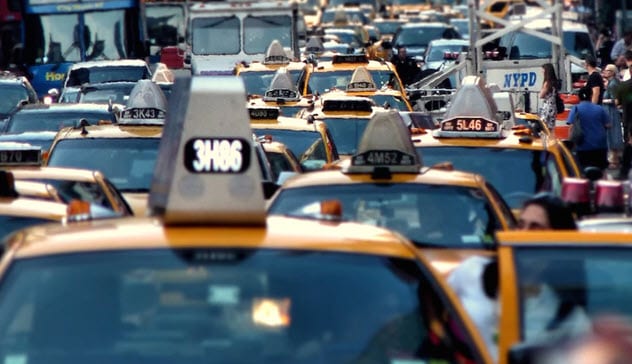
Environmental sustainability is a key piece of Uber’s image. The company prides itself on encouraging commuters to give up their vehicles and hail a lift instead. Proponents claim that the app is reducing the amount of traffic that spews harsh pollutants into the atmosphere.
As cofounder Travis Kalanick explained in 2015:
A city that welcomes Uber onto its roads will be a city where people spend less time stuck in traffic or looking for a parking space. It will be a cleaner city, where fewer cars on the road will mean less carbon pollution—especially since more and more Uber vehicles are low-emission hybrid vehicles.
Kalanick’s bold claims about sustainability are refreshing to hear. However, the body of evidence to support them is worryingly small. One of Uber’s key boasts is that they reduced San Francisco’s monthly carbon dioxide emissions by 120 metric tons back in 2015. However, there is a significant possibility that the data was distorted by a series of promotional offers that the company was running at the time.[3]
Furthermore, by claiming to reduce the number of cars on the road, Uber assumes that all its passengers would otherwise have driven. This fails to account for the former pedestrians and cyclists who have been enticed to hail rides.
In their defense, Uber claims that they are reticent to release journey data publicly to stave off competition from rival start-ups. They also cite the need for security.
7 They Sparked Mass Online Condemnation
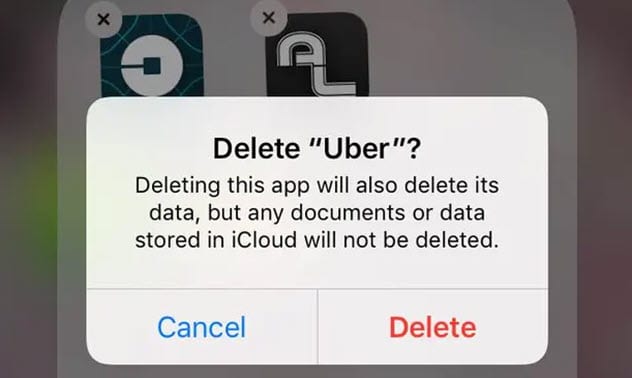
#DeleteUber is arguably one of the biggest PR nightmares in the history of social media. In one week, half a million users deleted their accounts in protest of the company’s contentious actions.
In January 2017, the US travel ban on a number of Muslim-majority countries was met with a wave of backlash. As part of the protest, the New York Taxi Workers Alliance, a professional drivers union, announced an hour-long boycott of the John F. Kennedy International Airport.
Shortly afterward, Uber decided that surge pricing (increasing fares at peak times in affected areas) should be turned off around JFK Airport. This was viewed by many online as an attempt to undermine and profit from the strike.
Protesters on Twitter reacted with a surge of condemnation, severing ties with the app and encouraging others to do the same. #DeleteUber promptly started trending. In total, around 500,000 users deleted their accounts.[4]
In his response, CEO Travis Kalanick branded the travel ban “unjust” and promised to support affected drivers. This included a $3 million investment in immigration and translation services.
6 They Fund Better Public Infrastructure
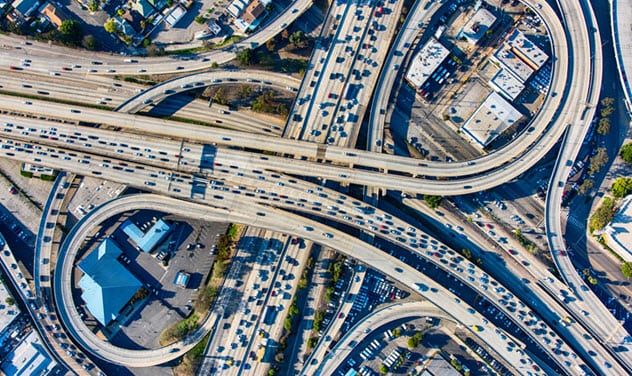
According to Uber, there is an urgent need for investment and innovation in public infrastructure. The ride-hailing company hopes to tackle the issue in collaboration with cities across the US while also pressing Congress to step up their contribution toward improving the roads.
Although the company does seem to be having a noticeable impact on infrastructure, it is important to understand that Uber’s actions are not charitable donations. The changes for which they are lobbying ultimately increase their profit margins.
Since 2015, Uber has forked out $2 million to encourage congestion pricing in New York with the aim of reducing traffic and boosting revenue for the city. The divisive decision to charge drivers to enter Manhattan’s busiest neighborhoods will benefit the company enormously. Reduced traffic will result in shorter journey times for Uber vehicles, and motorists put off by the congestion fee could be enticed to hail a ride instead.[5]
On top of this, Uber has announced four key principles to which Congress should adhere when financing federal infrastructure. In March 2019, the tech giant called on Congress to repair and maintain existing roads, prioritize public-private partnerships, encourage sustainable forms of transportation, and advance their use of cutting-edge technology.
While some supporters hail these developments as a win-win situation that promotes better infrastructure and boosts Uber’s profits, others are concerned about the implications of the company’s corporate dominance of the roads. The worry is that Uber’s lobbying is discouraging cities from investing in public transportation or other alternatives that may be more beneficial in the long run.
5 They Try To Conceal Hacks
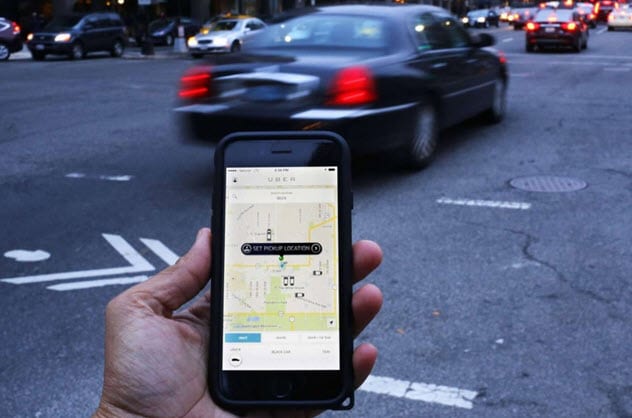
In October 2016, Uber was the victim of an immense global hack. Personal data—including names, phone numbers and emails addresses—was stolen from 57 million users. The license details of 600,000 US drivers were also accessed. Most damning of all, Uber’s chief security officer attempted to cover up the hack rather than inform users. But it all came spilling out a year later.
With flagrant disregard for their responsibility to notify customers, the company chose to pay the hackers $100,000 to delete the data and keep the breach quiet.
Although Uber assured passengers and drivers that no sensitive information like credit card and social security numbers was compromised by the breach, it was a massive blow to their public image that threw the integrity of the company into serious dispute.[6]
In 2018, Uber agreed to pay $148 million in compensation to 50 US states and the District of Columbia. As part of the settlement, they also promised a major overhaul of their security systems.
Xavier Becerra, the attorney general of California, blasted the cover-up as “a blatant violation of the public’s trust.” Cybersecurity expert Paul Lipman called the company’s data storage practices “unforgivable.”
4 They Are Changing The Face Of Drug Dealing

You might not imagine it, but drug dealers have been at the forefront of almost all major advances in technology. The rise of the dark web has provided an underground forum for black market sites like Silk Road to thrive. Burner phones are inextricably linked to dealing narcotics. Rumor has it that the first sale made over the Internet was a bag of marijuana.
Uber is no different. According to anecdotal reports from drivers, dealers are happy to use them as private chaperones from one client to another. However, a number of drivers are uneasy about having a potentially large quantity of drugs in their vehicles. Due to the nature of Uber, the vast majority of drivers own their cars and, as such, could be found culpable even if they weren’t aware.
Fortunately, in the handful of legal cases involving drug dealers and Uber, the drivers were rarely charged. In one instance in 2015, two Uber passengers were arrested in California after authorities discovered them with a quarter-pound of cannabis oil and $2,000. While both passengers were placed on probation, their driver was found innocent rather than charged as a coconspirator.
Although some drivers are concerned about being implicated by criminal passengers, others are less fazed by the prospect. As one driver from Boston wrote on an Internet forum: “Hookers, pimps, and dealers have been using taxis for 400 years, is it really surprising that they’d use Uber as well?”[7]
3 Some Of Their Staff Have Been Condemned For Serious Harassment
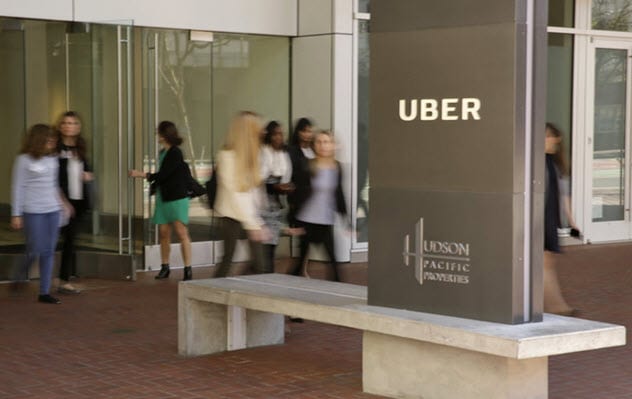
In recent years, some of the most serious accusations leveled against Uber involve harassment and discrimination. The tech giant has come under fire in a series of scandalous headlines which claim that some Uber workers are a danger to both passengers and fellow employees.
In 2018, it emerged that Uber had agreed to pay a settlement of $10 million to current and former employees following claims of serious workplace misconduct. Fifty-six people received a reported $34,000 each after being subjected to “incidents of discrimination, harassment, and/or hostile work environment and connecting their experiences to their race, national origin or gender.” A further 483 people were each paid around $11,000 due to other discrimination issues.
Technology corporations in Silicon Valley are often viewed as neglecting gender diversity issues and fostering toxic workplace environments. In February 2017, former Uber engineer Susan Fowler published a high-profile account of her manager propositioning her for sex. She also detailed the tepid response from human resources.[8]
Furthermore, the company has faced accusations that it attempts to suppress passengers who claim that they were assaulted by drivers and instead pressures the women to settle out of court.
Passengers who allege assault are made to settle their disputes through the private and often confidential process of arbitration. According to critics, this plays into hands of serial offenders and gives other victims less confidence to come forward.
In response, Uber announced that it is taking action to change. This includes reorganizing salary and equity structures and changing the method of performance review in line with legal recommendations.
2 They Are The Leaders Of The Sharing Economy
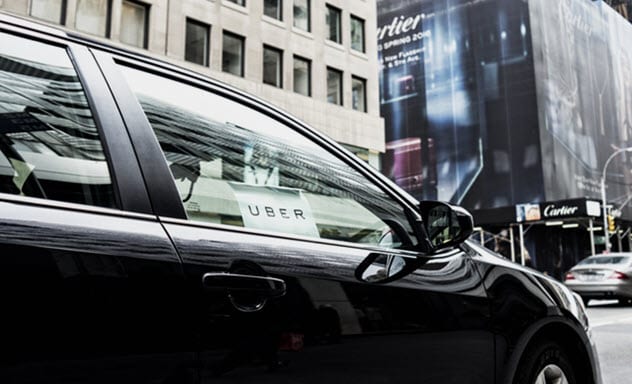
The sharing economy—using technology for the exchange of goods and services between multiple individuals—is one of the most rapidly expanding industries on the planet. Companies that a mere decade ago were seen as budding start-ups have grown into lucrative global businesses, including key players like Airbnb, Lyft, and, of course, Uber.
Due to the privacy of the businesses involved, the exact size of this hybrid market is anyone’s guess. However, the decisions by Uber and Lyft to hold initial public offerings (IPOs) should begin to open up the mystery. It is predicted that the number of Americans using the sharing economy will have risen to 86.5 million by 2021.
The unprecedented rise of the sharing economy is a wake-up call for traditional industries—either adapt or become obsolete. For example, Uber has swiftly dominated the transportation sector by providing a more efficient and convenient alternative to buses and taxis. In New York City, there are now 4.5 times more Ubers than yellow taxicabs, causing the cost of cab ownership in New York City to fall from $1 million to $200,000 in three years.
The sharing economy has transformed our relationship with services such as transportation and accommodation, while online peer-to-peer marketplaces like Ebay have revolutionized the sale and purchase of consumer goods. Traditional sectors must now catch up if they are to survive this advanced digital age of business.[9]
1 They Are Pioneers Of Self-Driving Cars
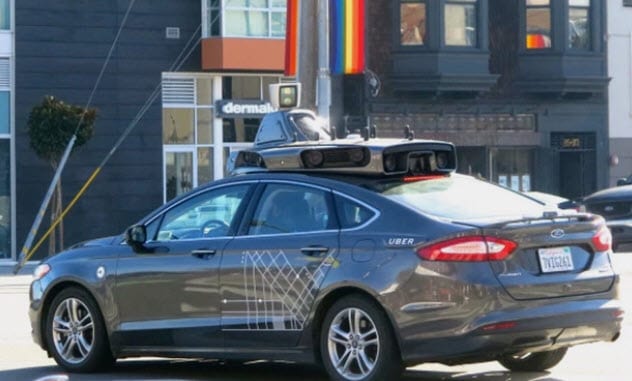
Uber is paving the way for a future filled with autonomous vehicles, although that future is a lot further away than initially expected. Only a few years ago, they were viewed as bold, enthusiastic technological trailblazers eager to get as many self-driving cars on the roads as possible.
Several of their global competitors like Google and Tesla rushed to bring out their own rival vehicles. Meanwhile, Volvo CEO Hakan Samuelsson announced that premium car owners would flock to buy autonomous cars.
That all changed after the death of Elaine Herzberg. On March 18, 2018, Herzberg was struck by an autonomous Uber SUV while walking outside a crosswalk in Arizona. She was later pronounced dead at the hospital. In the aftermath of the fatal collision, Uber suspended its autonomous test vehicles and brought operations in Arizona to a halt.[10]
A second wave of public testing resumed in December 2018, which marks the start of a more cautious approach to development in the self-driving industry. Instead of brash, overhyped comments about ushering in a new era, Uber now appears to understand that the engineering involved in building a car that can think for itself is far more complex than originally predicted.
Read about more surprising influences on our modern world on 10 Secret Societies That Created The Modern World and 10 Ways Ancient Egyptians Influenced Modern Life.








